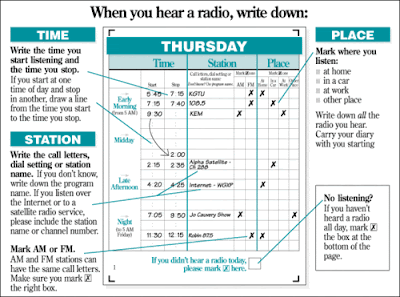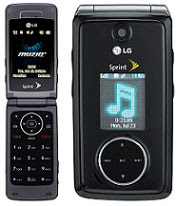Ford and BMW are not the only auto companies embracing new radio technology- Cadillac has recently become heavily involved with XM Satellite. Not only have they implemented XM radio as standard in their vehicles, but Cadillac has also united with the satellite radio giant to unleash a new advertisement promoting XM's "Theme Time Radio Hour." The ad features Bod Dylan, one of XM radio's celebrity djs, driving a Cadillac Escalade down a desert road. The tv ad is the first of a variety of media that will be used in this cross-promotion. An integrated marketing effort is in effect for coming months, which will also involve online and print media. Here is the 2 minute version of the new co-advertisement between Cadillac and XM Satellite Radio- featuring Bob Dylan.
In related developments, General Motors has announced that XM Satellite radio will now become standard on 2008 Hummer, Saab, and Buick models. It appears as though GM is leading the way in satellite radio integration. Six million XM-equipped vehicles have been built by the General since 2001, and there are currently fifty GM products with standard XM radio. Perhaps more innovative implementations such as these will improve the brand family's image.
Sources:
http://www.xmradio.com/dylan-cadillac/index.xmc
http://www.autoblog.com/2007/10/21/xm-for-all-satellite-radio-service-now-standard-on-2008-hummer/
Saturday, October 27, 2007
Sound Data?

The information we get from Arbitron regarding internet and satellite radio may be unreliable. Arbitron's radio diaries, that they use to gather data regarding consumer listening habits, was designed for more traditional radio formats. With this in mind, it would make sense that the design and wording of the survey may throw off those who listen to new radio formats. Marc Ramsey's blog embellishes on a number of factors that may skew the diary data. Here is a visual of the Arbitron survey that shows how satellite and internet radio data may be misrepresented.

First of all, the wording of the three main columns include "time," "station," and "place" can exclude satellite and internet radio. If they had used terms like channel or URL, it might be more inclusive. This is also a problem in the station section, where it states "Write the call letters, dial setting, or station name." Again, the terms channel or URL shuold be added as to not limit what the user is listening to. At the top line of the survey, it tells the respondent that "When you hear a radio, write down..." This doesn't specify what type of radio it may be (terrestrial, satellite) and doesn't include internet streaming as a possible option. Under the "station" section, there is no box to check satellite. There isn't a box for internet either. Why wouldn't Arbitron want data from these new radio formats? It only lets you select AM or FM frequencies. It is completely limiting the respondent's ability to tell the true story- as reflected in the diaries. There are countless people who are listening to these new radio formats that are not wholly accounted for in their radio data.
Friday, October 12, 2007
Cells That Stream
Considering the various technologies surrounding internet radio, satellite radio, and WiFi, it could not have been hard to predict the emergance of streaming Internet radio on cell phones. This feature is becoming more prominent amongst the increasingly tech-savvy public. Companies such as mSpot have become pioneers for this technology, and have partnered with mobile phone giants like Sprint to provide their services to people all over the country. Also teaming up with the radio technology collective is the popular online music service Pandora Media (see earlier post). The alliance allows users to access their onloine Pandora stations wirelessly from their cell phones, where ever they are. Now their personalized radio stations are portable, and can be listened to anywhere. Just link on the website, the cell phone screen displays song information such as the current song title, artist, genre, why it has been played, and even album artwork.

Pandora is now available on the whole Sprint Power Vision procuct line. The service is advertisement free, and costs $2.99 per month after the 30 day free trial they are currently offering. Another take on the radio-capable cell phone is the MUZIQ, compliments of Sprint and LG Electronics. The phone allows for over the air song downloads, a memory card that can hold 4 gigs of music, and an FM radio receiver that allows customers to listen to their favorite radio stations if they are within ten feet of an FM radio transmitter.

Sources:
http://www.mobiledia.com/news/59468.html
http://www.cellphonedigest.net/news/sprint_nextel/index.php?page=2

Pandora is now available on the whole Sprint Power Vision procuct line. The service is advertisement free, and costs $2.99 per month after the 30 day free trial they are currently offering. Another take on the radio-capable cell phone is the MUZIQ, compliments of Sprint and LG Electronics. The phone allows for over the air song downloads, a memory card that can hold 4 gigs of music, and an FM radio receiver that allows customers to listen to their favorite radio stations if they are within ten feet of an FM radio transmitter.

Sources:
http://www.mobiledia.com/news/59468.html
http://www.cellphonedigest.net/news/sprint_nextel/index.php?page=2
Thursday, October 11, 2007
Ford SYNC (Feat. Microsoft)

In an earlier post, I mentioned Ford Motor Company's advances regarding their addition of HD radio receivers to their automobiles. Apparently their newfound focus on innovative audio didn't stop there. Now they have introduced the "Ford SYNC" hand-free audio feature. The SYNC is the spawn of a partnership between Ford and Microsoft, and untilizes bluetooth technology to fascilitate wireless phone-to-car console connectivity. Basically the feature allows you to hear audio from your car speakers that is playing from mobile phones and digital music players. There are also add-ons which enhance the experience, such as the voice activated control system. A driver can change his audio sources easily just by enabling the voice-recognition program and verbally selecting his audio. These voice commands can also access a genre, artist or even a song title. On top of this, the phones and mobile devices can also send other data such as address book entries (names, phone numbers, emails, etc.) to the vehicle to be viewed on the main screen. The new feature supports many popular digital media players such as the iPod, the Microsoft Zune, and PlayForSure players. Portable USB storage devices may also be used.

The main thing to understand about this feature, and why it is such a breakthrough, is that it is not just a device, but new software that can be built upon. The program can be adapted and updated for nbew devices when they come out. The interface in the vehicles is a program that sends data and facilitaes audio play seamlessy. In the future this will most likely be standard for automobiles. There's no telling what additional features could be added to this software in the future. The SYNC will be available in a dozen Ford, Mercury and Lincoln products beginning in January. Here is a video that gives a visual overview on the SYNC.
Sources:
http://www.orbitcast.com/archives/internet-radio-in-your-car.html
http://media.ford.com/newsroom/release_display.cfm?release=25168
Saturday, October 6, 2007
Online Radio & Free (Legal) Music
One major competitor to terrestrail, satellite and HD radio formats is online radio. Countless online radio stations can be accessed for free using audio software such as iTunes, or web sites like Pandora. Purchasing an HD radio receiver loses some appeal when you could just plug in your computer and hear endless online radio, free of cost. Additional upsides to online radio are the innovative formats that are taking hold. Pandora, for example, allows users to input their favorite genres, artists, or individual songs into the programming options, and the website will automatically match the selected items to other similar songs.

This, in effect, allows you to create your own customized radio stations with music that shares common themes with your favortite artists. Additionally, as you listen to each songs it selects, you can tell Pandora to either play more songs that are similar to it, or to play less. This keeps the customization process going throughout your listening experience. This radio service is free becasue the website earns revenue from advertising. The concept of free music is one that many predict will play a large role in the future of music. With falling cd sales, and the constant threat of illegal downloads and file sharing, some have pondered offering free albums, which would ultimately result in higher artist popularity.
This would in turn be reflected in sales via merchandise, tours, etc. This week, world famous alternative band Radiohead announced it would be offering its latest album for whatever consumers wanted to pay for it. The amount charged to your credit card is completely up to you, which includes for free of course. In this LA Times article, Radiohead is being praised as a trend setter in the industry. "This is all anybody is talking about in the music industry today," said Bertis Downs, the longtime manager of R.E.M., the veteran alt-rock band that was inducted into the Rock and Roll Hall of Fame this year. "
 ...
... 
This is the sort of model that people have been talking about doing, but this is the first time an act of this stature has stepped up and done it. . . . They were a band that could go off the grid, and they did it." Radiohead's latest news has been one of the most popular blog topics of the week, and many are saying it could be mark a watershed for the music industry.
It is no question that the music industry, which includes radio and its new formats, is one that is constantly changing. New developments like Pandora online radio and free downloads will both impact radio for sure, and marketers will have to adjust accordingly.

This, in effect, allows you to create your own customized radio stations with music that shares common themes with your favortite artists. Additionally, as you listen to each songs it selects, you can tell Pandora to either play more songs that are similar to it, or to play less. This keeps the customization process going throughout your listening experience. This radio service is free becasue the website earns revenue from advertising. The concept of free music is one that many predict will play a large role in the future of music. With falling cd sales, and the constant threat of illegal downloads and file sharing, some have pondered offering free albums, which would ultimately result in higher artist popularity.
This would in turn be reflected in sales via merchandise, tours, etc. This week, world famous alternative band Radiohead announced it would be offering its latest album for whatever consumers wanted to pay for it. The amount charged to your credit card is completely up to you, which includes for free of course. In this LA Times article, Radiohead is being praised as a trend setter in the industry. "This is all anybody is talking about in the music industry today," said Bertis Downs, the longtime manager of R.E.M., the veteran alt-rock band that was inducted into the Rock and Roll Hall of Fame this year. "
 ...
... 
This is the sort of model that people have been talking about doing, but this is the first time an act of this stature has stepped up and done it. . . . They were a band that could go off the grid, and they did it." Radiohead's latest news has been one of the most popular blog topics of the week, and many are saying it could be mark a watershed for the music industry.
It is no question that the music industry, which includes radio and its new formats, is one that is constantly changing. New developments like Pandora online radio and free downloads will both impact radio for sure, and marketers will have to adjust accordingly.
Subscribe to:
Comments (Atom)